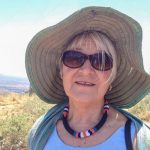
 Our Game Changers’ Project Officer, Bukeka Silekwa, is a Rosebank College journalism graduate enrolled on Roving Reporters journalism training programme supported by the Human Elephant Foundation and Sunday Tribune. In addition to writing Game Changers profiles alongside Liz Clarke, Myrtle Ryan and the Roving Reporters team, Bukeka is responsible for updating this page of snapshot profiles with links to the original published stories. We hope to extend this training to include multi-media skills, including production of audio clips and short videos about the work that Game Changers do.
Our Game Changers’ Project Officer, Bukeka Silekwa, is a Rosebank College journalism graduate enrolled on Roving Reporters journalism training programme supported by the Human Elephant Foundation and Sunday Tribune. In addition to writing Game Changers profiles alongside Liz Clarke, Myrtle Ryan and the Roving Reporters team, Bukeka is responsible for updating this page of snapshot profiles with links to the original published stories. We hope to extend this training to include multi-media skills, including production of audio clips and short videos about the work that Game Changers do.
If you know someone deserving profiling as a Sunday Tribune Game Changer, please complete this nomination form and email to bukekasilekwa@gmail.com cc to tribunenews@inl.co.za.
AMAQHAWE AWARDS
All profiled Game Changers are nominated for the Sunday Tribune Amaqhawe Awards. The awards provide a platform for individuals, organisations and sponsors to present prizes to candidates of their choice. For further information contact acting assistant editor of the Sunday Tribune, Annie Dorasamy at annie.dorasamy.inl.co.za.
Nicola Gerrard
Canned lions make this woman’s blood boil
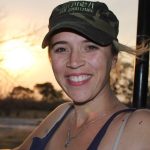
Getting charged by an elephant bull while learning to drive in the Kruger National Park is a moment Nicola Gerrard will never forget. Nicola guesses the bull was in musth — a period in a bull’s life when testosterone levels can be up to six times the normal level. As an avid outdoor adventurer, Nicola, now 33, has had her fair share of brushes with big fauna. These vivid memories are closely intertwined with a host of others related to Gerrard’s love of diverse landscapes, people and wildlife – and for her late sister, Kim, who inspired the work Nicola does today. She is the founding director of loveAfrica Marketing. Among the campaigns the loveAfrica marketing is working on is Blood Lions which hopes to put a stop to captive predator breeding programmes that result in lions being bred for the bullet. Click here to read Nicola’s story as told to Izze Siemann and Fred Kockott, and first published in Sunday Tribune on 19 August, 2018.
Sakhile Mathenjwa
 Sakhile was a professional hunter who laid aside his rifle to become a game guide. Now he is focused on a community camp, Wildlife Spirit, which is perched high above the Pongolapoort (Jozini) dam. So far it is has five rondavels, but is expanding. Sakhile labours from dawn to dusk – building, painting, renovating, sorting out the electrics and plumbing – to get this little tourism corner of Africa fully operational. His “green walk”, as he calls it, began when someone persuaded him conservation tourism was a better option than hunting. Click here to read Myrtle Ryan’s Game Changer profile of Sakhile, as published in the Sunday Tribune on August 12 2018.
Sakhile was a professional hunter who laid aside his rifle to become a game guide. Now he is focused on a community camp, Wildlife Spirit, which is perched high above the Pongolapoort (Jozini) dam. So far it is has five rondavels, but is expanding. Sakhile labours from dawn to dusk – building, painting, renovating, sorting out the electrics and plumbing – to get this little tourism corner of Africa fully operational. His “green walk”, as he calls it, began when someone persuaded him conservation tourism was a better option than hunting. Click here to read Myrtle Ryan’s Game Changer profile of Sakhile, as published in the Sunday Tribune on August 12 2018.
Sheila Berry
iMfolozi: war against mine greed
There’s no going back for those determined to halt mining activities in the globally treasured wildernesss areas of KwaZulu-Natal, says feisty environmental activist, Sheila Berry. Sheila, the founder of the Global Environmental Trust (Get), is adamant that ongoing coal operations on the boundary of the iMfolozi wilderness area must stop – a sentiment she says is shared by people in neighbouring communities. Besides causing irreparable damage to the environment, people’s health is at stake. “When you listen to the heart-breaking stories of families who, far from benefiting from mining, have seen their homes, livelihoods and communities destroyed, you realise that their cry for help is part of a global call for radical intervention and immediate action,” says Berry. Click here to read Liz Clarke’s Game Changer profile of Sheila Berry as published in the Sunday Tribune on August 5 2018.
Theo Gina
Saving turtles by practising what he preaches
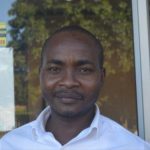 No-one likes a hypocrite. So when you work in environmental tourism, earning your crust showing people pristine nature, it’s important to practise what you preach and to remember that little things matters. That’s something Theo Xolani Gina, owner of Theo Tours and Culture based in St Lucia on the Zululand coast, understands well. During his turtle tours, from November until February each year, Gina often witnesses the staggering impact of plastic pollution. “Seeing a sea turtle struggling to get back into the water, tangled by a fishing rope is a very disturbing picture,” says Theo. So on his cycle tours, people get bottles of water that are attached to the bicycles. They are refillable and returned with the bicycle to avoid litter. Click here to read Bukeka Silekwa’s Game Changer profile of Theo.
No-one likes a hypocrite. So when you work in environmental tourism, earning your crust showing people pristine nature, it’s important to practise what you preach and to remember that little things matters. That’s something Theo Xolani Gina, owner of Theo Tours and Culture based in St Lucia on the Zululand coast, understands well. During his turtle tours, from November until February each year, Gina often witnesses the staggering impact of plastic pollution. “Seeing a sea turtle struggling to get back into the water, tangled by a fishing rope is a very disturbing picture,” says Theo. So on his cycle tours, people get bottles of water that are attached to the bicycles. They are refillable and returned with the bicycle to avoid litter. Click here to read Bukeka Silekwa’s Game Changer profile of Theo.
Grant Smith
On a mission to counter the “Jaws” syndrome
 If ever a creature needed a champion, it is the much-maligned shark. Misunderstood, persecuted and misrepresented, sharks are constantly under attack. Grant wants to change that. He established Sharklife in 2005 in Johannesburg to address the alarming exploitation of both shark populations and ocean fisheries in South African waters. He then moved to Sodwana Bay where he now runs the Sharklife Ocean Centre which educates people, in particular children, about these apex predators, hoping to replace the “Jaws” syndrome with positive understanding and respect. Click here to read Myrtle Ryan’s Game Changer profile of Grant as published by the Sunday Tribune on July 22 2018.
If ever a creature needed a champion, it is the much-maligned shark. Misunderstood, persecuted and misrepresented, sharks are constantly under attack. Grant wants to change that. He established Sharklife in 2005 in Johannesburg to address the alarming exploitation of both shark populations and ocean fisheries in South African waters. He then moved to Sodwana Bay where he now runs the Sharklife Ocean Centre which educates people, in particular children, about these apex predators, hoping to replace the “Jaws” syndrome with positive understanding and respect. Click here to read Myrtle Ryan’s Game Changer profile of Grant as published by the Sunday Tribune on July 22 2018.
Raymond Langa
Out of the forest, on to plight of the environment
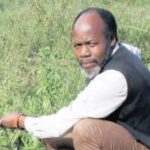 From the near-destruction of Dukuduku forest near St Lucia, one man has turned his life into saving indigenous species where he lives. It was while hiding in the forest, fleeing violence, that Raymond Langa says he had his eureka moment. Raymond is a co-founder of the Khula Village Nature Conservation Action Group, in St Lucia. They do clean-ups with support from Ezemvelo KZN Wildlife and the also run the Manukelana indigenous nursery. Raymond also facilitates environmental education for school groups at iSimangaliso Wetland Park and works fiercely to protect Red Heart trees which are endangered in his area. Click here to read Myrtle Ryan’s Game Changer profile of Raymond, as published by the Sunday Tribune on July 15, 2018.
From the near-destruction of Dukuduku forest near St Lucia, one man has turned his life into saving indigenous species where he lives. It was while hiding in the forest, fleeing violence, that Raymond Langa says he had his eureka moment. Raymond is a co-founder of the Khula Village Nature Conservation Action Group, in St Lucia. They do clean-ups with support from Ezemvelo KZN Wildlife and the also run the Manukelana indigenous nursery. Raymond also facilitates environmental education for school groups at iSimangaliso Wetland Park and works fiercely to protect Red Heart trees which are endangered in his area. Click here to read Myrtle Ryan’s Game Changer profile of Raymond, as published by the Sunday Tribune on July 15, 2018.
Francoise Malby-Anthony
Thula Thula drums up passion among volunteers
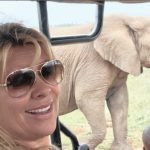 Francoise is the owner of Thula Thula Private Game Reserve near Nkwaleni in Zululand. Since the 2012 death of her husband, Lawrence Anthony, known worldwide as “the Elephant Whisperer”, she has worked tirelessly for the environment, founding the first orphan rhino sanctuary in KwaZulu-Natal and also setting up a Wildlife Rehabilitation Centre in conjunction with the Fundimvelo Community Conservation Trust and Four Paws, an international animal welfare organisation. Francoise also takes a keen interest in the neighbouring community, and recently celebrated the 20th anniversary of the reserve with the opening of the Thula Thula Volunteers Academy, which will offer local and international people a chance to get involved in wildlife conservation, reserve management, and environmental studies. Click here to read Myrtle Ryan’s Game Changer profile of Francoise, as published by the Sunday Tribune on July 8, 2018.
Francoise is the owner of Thula Thula Private Game Reserve near Nkwaleni in Zululand. Since the 2012 death of her husband, Lawrence Anthony, known worldwide as “the Elephant Whisperer”, she has worked tirelessly for the environment, founding the first orphan rhino sanctuary in KwaZulu-Natal and also setting up a Wildlife Rehabilitation Centre in conjunction with the Fundimvelo Community Conservation Trust and Four Paws, an international animal welfare organisation. Francoise also takes a keen interest in the neighbouring community, and recently celebrated the 20th anniversary of the reserve with the opening of the Thula Thula Volunteers Academy, which will offer local and international people a chance to get involved in wildlife conservation, reserve management, and environmental studies. Click here to read Myrtle Ryan’s Game Changer profile of Francoise, as published by the Sunday Tribune on July 8, 2018.
Themba Mthembu
Sneak beak: A bird watcher’s story
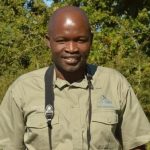 Themba has a remarkably canny knack that leaves some of the world’s leading birders astounded. It’s the things we learn as children that often shape who we become as adults. And so it is with Themba Mthembu, who grew up on the shores of Lake St Lucia in KwaZulu-Natal, learning about nature on his gogo’s lap. “Being outside was my way of life. From the age of six or eight I was already in the bush, hunting,” says Themba. Today, Themba is a committed ecologist. The 40-year-old has completed courses run by the South African Wildlife College as well as BirdLife South Africa, and now runs Themba’s Birding and Ecotours, which operates from St Lucia. Click here to read Izze Siemann’s Game Changer profile of Themba.
Themba has a remarkably canny knack that leaves some of the world’s leading birders astounded. It’s the things we learn as children that often shape who we become as adults. And so it is with Themba Mthembu, who grew up on the shores of Lake St Lucia in KwaZulu-Natal, learning about nature on his gogo’s lap. “Being outside was my way of life. From the age of six or eight I was already in the bush, hunting,” says Themba. Today, Themba is a committed ecologist. The 40-year-old has completed courses run by the South African Wildlife College as well as BirdLife South Africa, and now runs Themba’s Birding and Ecotours, which operates from St Lucia. Click here to read Izze Siemann’s Game Changer profile of Themba.
Gabriel Sithole
Shooting nature for the best
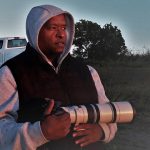
Radio personality, entrepreneur, wildlife photographer and activist … that’s some resume. And it’s just as well because Gabriel Sithole needs all the skills he can muster for a tough job. Armed with a camera, Gabriel Stihole, is on a mission to undo the destructive behaviour of people by documenting the wonders of the natural world around us. He also hopes to teach folk not to reach for a stick every time they see a snake.
Click here to read Bukeka Silekwa’s Game Changer of Gabriel.
Dr Heinz Kohrs
Jumbo-sized plan for pachyderms
 For anyone to generate a significant shift, a partner with the same mindset to double the impact is needed, especially when the vision needs the backing of science. Dr Heinz Kohrs feels strongly that elephants should be allowed to roam the vast spaces of Africa and recently penned an impassioned letter to the Minister of Environmental Affairs to support plans for a mega transfrontier conservation corridor extending from KwaZulu-Natal through to Tanzania. It is a truly jumbo-sized vision requiring the dropping of a multitude of fences and a change of mindset. This vision is supported by pachydermist, Heike Zitzer. Click here to read Myrtle Ryan’s Game Changer profile of Heinz and Heike as published by the Sunday Tribune on June 17 2018.
For anyone to generate a significant shift, a partner with the same mindset to double the impact is needed, especially when the vision needs the backing of science. Dr Heinz Kohrs feels strongly that elephants should be allowed to roam the vast spaces of Africa and recently penned an impassioned letter to the Minister of Environmental Affairs to support plans for a mega transfrontier conservation corridor extending from KwaZulu-Natal through to Tanzania. It is a truly jumbo-sized vision requiring the dropping of a multitude of fences and a change of mindset. This vision is supported by pachydermist, Heike Zitzer. Click here to read Myrtle Ryan’s Game Changer profile of Heinz and Heike as published by the Sunday Tribune on June 17 2018.
Brendon Germaine
Call to canoeists to join in the fight
S aving a famous KwaZulu-Natal river is this man’s mission. Ten-times Dusi competitor Brendon reckons that the river that gave birth to the iconic Cane Marathon is dying. “Unless we do something about it in the next few years, the event will no longer be possible because of the contamination and health risks. Already we are seeing a reduction in the numbers of competitors. Getting sick is not just a maybe in the Dusi. It’s the norm,” says Brendon who firsthand experience of the health impact, has spurred him into action to save the health of the Msunduzi River. Click here to read Liz Clarke’s Game Changer profile of Brendon as published by the Sunday Tribune on June 10 2018.
aving a famous KwaZulu-Natal river is this man’s mission. Ten-times Dusi competitor Brendon reckons that the river that gave birth to the iconic Cane Marathon is dying. “Unless we do something about it in the next few years, the event will no longer be possible because of the contamination and health risks. Already we are seeing a reduction in the numbers of competitors. Getting sick is not just a maybe in the Dusi. It’s the norm,” says Brendon who firsthand experience of the health impact, has spurred him into action to save the health of the Msunduzi River. Click here to read Liz Clarke’s Game Changer profile of Brendon as published by the Sunday Tribune on June 10 2018.
Cole Du Plessis
Saving our very vocal wild dogs
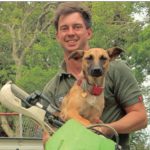 WHEN Cole du Plessis sees a flash of mottled colour in the bush, or hears “yipping” and “twittering”, he is delighted. “Wild dogs are very emotional animals and use their sounds as a body language to express that,” says Cole. “What I love most about them is their vocalising. It translates their happy nature and strong bond within the pack, where just being together gives them something to celebrate.” Click here to read Myrtle Ryan’s Game Changer profile of the man, as published in the Sunday Tribune on June 3 2018.
WHEN Cole du Plessis sees a flash of mottled colour in the bush, or hears “yipping” and “twittering”, he is delighted. “Wild dogs are very emotional animals and use their sounds as a body language to express that,” says Cole. “What I love most about them is their vocalising. It translates their happy nature and strong bond within the pack, where just being together gives them something to celebrate.” Click here to read Myrtle Ryan’s Game Changer profile of the man, as published in the Sunday Tribune on June 3 2018.
Nikki Chapman
Observe, submerge, conserve
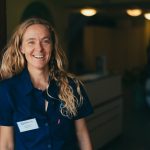
Salt water flows through Nikki Chapman’s veins. So the WildOcean’s Ocean Stewards programme, which is geared to championing the cause of our beleaguered oceans and conducting research in support of Marine Protected Areas, is the perfect home for her. While Nikki is not a marine scientist, she is certainly well-versed with what’s happening in depths of the ocean seldom explored before. She believes that to understand the intricacies of the ocean and the animals that swim in it you need to immerse yourself in it, and that’s what she does in taking marine science students on annual deep-sea research cruises on board the research vessel Angra Pequena. Click here to read the Sunday Tribune’s Game Changer profile of Nikki published on May 27 2018.
Simangele Msweli
A eureka moment changed her life
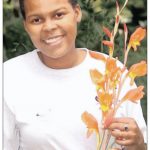
Simangele’s encounter with an extra-mural school environmental club ignited a lifetime passion for research into indigenous flowers. She has recently completed her master’s thesis on two species of indigenous flowering primulas,and is now taking this knowledge to young blood. Msweli believes environmental awareness studies that look at everything from plastic pollution through to the degradation of indigenous flora and fauna should be incorporated in school subjects and taught from primary school level onwards. Click here to read Liz Clarke’s Game Changer profile of Simangele as published by the Sunday Tribune on May 20, 2015.
Jim Taylor
Environmental degradation is responsible for more deaths than war
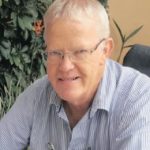 So says Jim Taylor, the environmental education director of the Wildlife and Environment Society of South Africa (WESSA).
So says Jim Taylor, the environmental education director of the Wildlife and Environment Society of South Africa (WESSA).
Put simply, this means a complete rethink of how we live and work on Earth, writes Myrtle Ryan in this Game Changer profile published by the Sunday Tribune on May 13 2018.
Click here to view the story
Sindiswa Sbutsa
Collecting waste has become a fledgling business for this ‘wastepreneur’
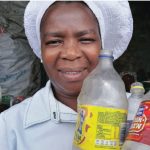
The heavy rains that hit Durban in October 2017 exposed massive amounts of waste, some of it blocking sewage pipes. Cato Manor resident Sindiswa Sbutsa decided to kill two birds with one stone. She started collecting waste for WildTrust’s recycling centre, earning deserved income to support her family and also helping keep the community clean. Click here to read Bukeka Silekwa’s Game Changer profile of Sindiswa as published by the Sunday Tribune on May 6 2018.
Nduduzo Khoza
Guarding the Blue crane
An activist for the KZN Crane Foundation at Karkloof in KZN, Nduduzo Khoza, focuses on KZN’s protected open spaces and preserving indigenous birds, in particular Blue cranes. Click here to read about Khoza’s work with endangered birds on the Sunday Tribune Game’ Changers page, as published on April 29 2018.
Pandora Long
Pandora Long is an education, training and development practitioner. She founded the Happy Earth Environmental Education and Sustainability Forum and believes that when people have the same vision, their skin colour or what they have or do not have is of little importance. Long reckons that when divisions and differences are put aside, people can work together to achieve good. In 2012 she developed the Msunduzi Mkhambathini Peace project, which focuses on the protected environment, environmental education, art and culture, conservation and eco-tourism in the Msunduzi and Mkhambathini municipalities. Click here to read about Long on the Sunday Tribune Game’ Changers page published on April 22 2018.
Cherise Acker-Cooper
Cherise Acker-Cooper works for the the Endangered Wildlife Trust’s threatened amphibian programme. It’s an environmental initiative that goes beyond saving frogs. The 40-year-old Amanzimtoti resident is also involved in recruiting people from elsewhere in eThekwini and beyond to train them in conservation related skills, including clearing alien invasive plants; and occupational health and safety.Getting rid of alien plants is an ongoing task and as a useful spin-off creates jobs.Acker-Cooper is also involved in training specialist frog guides, who also serve as local environmental champions. Click here to read pdf of published story.
Jurgen Jacobs
Sodwana Bay resident, Jurgen Jacobs is dedicating his time to empowering young people through his Small Steps Surfing Programme. The 24-year-old wants to preserve the beauty of the planet so apart from teaching youngsters to surf, he gets them to help with beach clean-ups.With support from Ufudu Turtle Tours, a Sodwana turtle tours and conservation operation run by his father, Peter, Jacob junior has travelled the country seeking support for his programme, including collecting surfboards and other equipment. Click here to read pdf of published story.
Saba Ngcobo
When Sister Saba Ngcobo is not holding down her day job as deputy principal at Eqinisweni Primary School in Amatikwe, Inanda, she is a facilitator with the Memprow SA programme. Through the programme, Ngcobo encourages young people to pursue their right to education, knowledge, personal and social power, economic stability and to live in a violence-free society. Gender based violence, gender inequality and other forms of abuse and discrimination against girls and young women are other areas she focuses on. Memprow International was founded in 2008 by Ugandan gender and social development specialist Dr Hilda Tadria. It now operates in other African Countries, including South African since 2014. Ngcobo learnt about Memprow through Dr Terry Sacco, her supervisor at the Augustine College of South Africa, where Ngcobo is doing a master’s in philosophy of education. Ngcobo, who was born and raised in KwaSwayimane, Mbava. She took her first vows with the Daughters of Charity of the Sacred Heart of Jesus, a Catholic order, in 1989. Ngcobo has spent many years working with young people, including hospital ministry at Pietermaritzburg’s Edendale Hospital. Click here to read pdf of published story.
Thabo Madlala
Our national bird, the blue crane, and other other African cranes are under threat because of habitat loss, poisonings and powerline collision. But if these beautiful bird have a future it will be thanks to men like Thabo Madlala.Madlala, an Endangered Wildlife Trust Eco Ranger, operates in between Underberg, Swartberg, Franklin, Kokstad and Matatiele, engaging with farmers to encourage them to eradicate alien plants that encroach on the cranes’ habitat.But like charity, conservation begins at home, and Madlala is also doing his bit for nature in the Mqatsheni communal area, north of Himeville, that he hails from.He recently started a hiking club in Mqatsheni and has trained rock art guides to lead hikes and offer homestays for tourists. Click here to read pdf of published story.
Tich and Joan Smith
Husband and wife, Tich and Joan Smith are the founders of the LIV Village in Cottonlands, Verulam. LIV Village started as an idea in 1997 when the Smiths and women from their church began feeding children in the informal community of Amaoti, near Phoenix. Initially 30 children were receiving peanut butter sandwiches and soup under a tree in the area. Soon, more than a thousand children were being helped. Realising that many Amaoti children were not attending school, they launched a back-to-school programme with the help of local women. Children were staying away from school because conditions at home were often bad. Some were orphans, others abused or neglected. In 2009, the Smith’s bought 31 hectares of farmland to establish a home and raised funds with the help of the government, businesses and churches. Initially, They built six homes and LIV Village grew from there – and it continues to grow. At the time of writing, the village had 96 homes, a school, a church and garden for abused and orphaned children. It has space for 600 children. Thirty-five properly vetted foster mothers take care of the children. Qualified social workers, psychologists, medical staff and other therapists help with the wellbeing of the LIV Village children. The staff stay within the village with their families to create a community where everyone plays a role in parenting. The children stay at the home until they are able to earn a living and fend for themselves. “Our dream is that South Africa becomes known as the country that looks after their children to the glory of God,” said Joan. Click here to read pdf of published story.
Samson Phakathi
Samson Phakathi, a Howick based environmentalist and an Endangered Wildlife Trust (EWT) senior fieldworker, brings cultural sensitivity and a sound knowledge of the legalities to help combat poaching, engaging directly traditional leaders, school children and their teachers, private landowners, the police and licensed hunters. His work with the Threatened Greenland Species Programme involves protecting grasslands and the animals and plants species that inhabits them. Click here to read pdf of published story.
Keith Cooper
Keith Cooper hardly needs much introduction in conservation circles, and it would take too long to list all his accomplishments of this former conservation director for the Wildlife and Environment Society of South Africa (WESSA) Cooper has put a stop to illegal beach cottages on the Wild Coast, lobbied for land in the Hluhluwe-Imfolozi Corridor to be incorporated into two nature reserves, and started Bergwatch to monitor our mountain heritage. He is now helping to rehabilitate forests in Karkloof – a 15 hectare pine plantation has been felled and replaced with indigenous tree such as the endangered black stinkwood. With the land returning to its natural state, creatures including the Cape parrot, eastern bronze-naped pigeon, and dwarf chameleon have been returning. Click here to read pdf of published story.
Iqbal Khan
Iqbal Khan has got himself into a whole new ball game since retiring from a long career as a sports journalist. The 68-year-old and his partners in Water for Life are sinking their energies into helping drought-hit rural communities.They have teamed up with an engineering contractor with borehole drilling expertise and a water diviner to pinpoint suitable underground water courses. On one of their first projects they struck underground water at a local Durban school. The borehole became a blessing to people in the local community. As sinking boreholes and extracting the water can be a pricey business, Water for Life appealed to donor organisations and the corporate responsibility sector in and had, at the time of writing, funded 13 boreholes in communities in around Durban, on the South Coast in northern KwaZulu-Natal. Each borehole is approved by the Council for Scientific and Industrial Research and registered with the Department of Water Affairs and tested for safety and to see that it easy to use. Click here to read the pdf of the published story.
Shirley Schieffer
This North Beach, Durban, pensioner is putting people half her age to shame with her practical and energetic approach to caring for the environment. Shirley Schieffer, 82, rises every day and leaves the comfort of her Eden Roc Retirement Complex home to hit the beachfront streets, looking for litter. With her peak cap on, the tanned Schieffer braves the sometimes harsh elements as she makes her way to Carpendale Park, to clean up any litter there and on the surrounding streets. Sometimes her cleans-ups will take her to the area twice or three times in a day.She said she sees her work as doing her bit to keep the environment clean and rubbish-free. Schieffer said that for as long as she can remember she has had an obsession for looking after nature. That aside, the morning litter patrols provide her with excellent exercise. She starts her clean-up at the promenade opposite Eden Roc before making her way towards the site of the former Snake Park.She then scours the fenceline in front of the dune forest, where litter often gets trapped. The dunes are a natural habitat for wildlife and Schieffer said it was no fun watching the monkeys there if the view is marred by trash. Click here to read the pdf of the published story on Shirley Scheiffer
Paolo Candotti
Kloof Conservancy chairman Paolo Candotti believes in less talk and more action. The conservancy works to preserve the delicate biodiversity in the Outer West and to raise finance for projects in the Krantzkloof Nature Reserve and surrounding areas. Candotti, a mechanical engineer by profession, and his team support Ezemvelo KZN Wildlife in improving and protecting the Krantzkloof Nature Reserve. They remove invasive and alien vegetation from verges along the M13 from Richmond Road to Hillcrest and from the rivers and streams that run through Kloof and neighbouring areas. The conservancy is also the implementing agency for the Take Back Our River project that aim to restore the health of rivers in eThekwini. Candotti and his team invites school children from different backgrounds to join their environmental education programme. The children get involved in Identifying and collecting data and samples near the river and testing the water’s health, working with volunteering scientists and teachers. Click here to read pdf of published story
Ayanda Lipheyana
Ayanda Lipheyana, 31, of Mpophomeni township near Midmar Dam, drives various environmental programmes in Mpophomeni township near Midmar Dam in association GroundTruth, teaching young people how to monitor river health and educating them about the consequences of throwing rubbish into a river. Lipheyana, who is in the third year of a Bachelor of Science degree through Unisa, runs a river walk for youngsters every second Saturday. He uses the walks to demonstrates science tools, teaching young people how to monitor river health, including by collecting small animals from the water as samples. Lipheyana also runs civic awareness initiatives that encourage people to appreciate the environment and the sanctity of communal land. Lipheyana received a Wildlife and Enviromental Society of South Africa (WESSA) Award in September 2017, capping a busy four years of conservation work. Click here to read pdf of published story.

